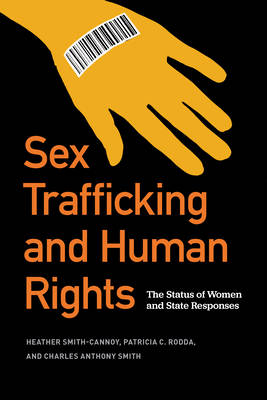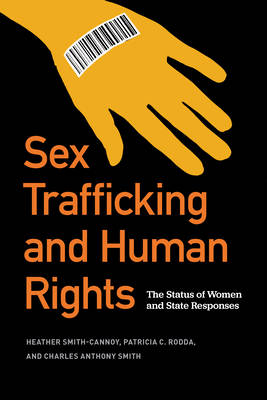
- Retrait gratuit dans votre magasin Club
- 7.000.000 titres dans notre catalogue
- Payer en toute sécurité
- Toujours un magasin près de chez vous
- Retrait gratuit dans votre magasin Club
- 7.000.0000 titres dans notre catalogue
- Payer en toute sécurité
- Toujours un magasin près de chez vous
Sex Trafficking and Human Rights
The Status of Women and State Responses
Heather Smith-Cannoy, Patricia C Rodda, Charles Anthony SmithDescription
Case studies explore how women's rights shape state responses to sex trafficking and show how politically empowering women can help prevent and combat human trafficking
Human trafficking for the sex trade is a form of modern-day slavery that ensnares thousands of victims each year, disproportionately affecting women and girls. While the international community has developed an impressive edifice of human rights law, these laws are not equally recognized or enforced by all countries. Sex Trafficking and Human Rights demonstrates that state responsiveness to human trafficking is shaped by the political, social, cultural, and economic rights afforded to women in that state.
While combatting human trafficking is a multiscalar problem with a host of conflating variables, this book shows that a common theme in the effectiveness of state response is the degree to which women and girls are perceived as, and actually are, full citizens. By analyzing human trafficking cases in India, Thailand, Russia, Nigeria, and Brazil, they shed light on the factors that make some women and girls more susceptible to traffickers than others.
This important book is both a call to understanding and a call to action: if the international community and state governments are to responsibly and effectively combat human trafficking, they must center the equality of women in national policy.
Spécifications
Parties prenantes
- Auteur(s) :
- Editeur:
Contenu
- Nombre de pages :
- 288
- Langue:
- Anglais
Caractéristiques
- EAN:
- 9781647122614
- Date de parution :
- 01-09-22
- Format:
- Livre broché
- Format numérique:
- Trade paperback (VS)
- Dimensions :
- 160 mm x 236 mm
- Poids :
- 544 g

Les avis
Nous publions uniquement les avis qui respectent les conditions requises. Consultez nos conditions pour les avis.






